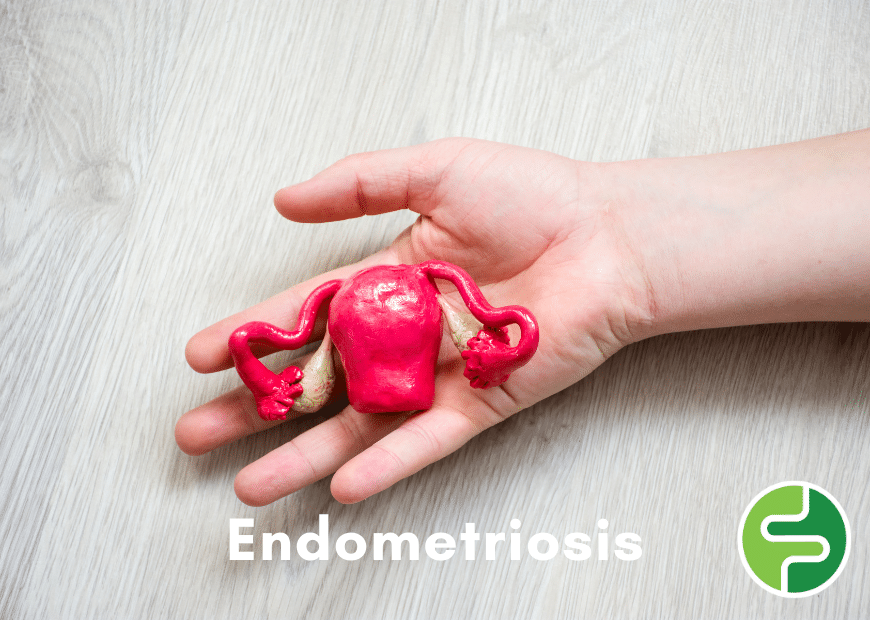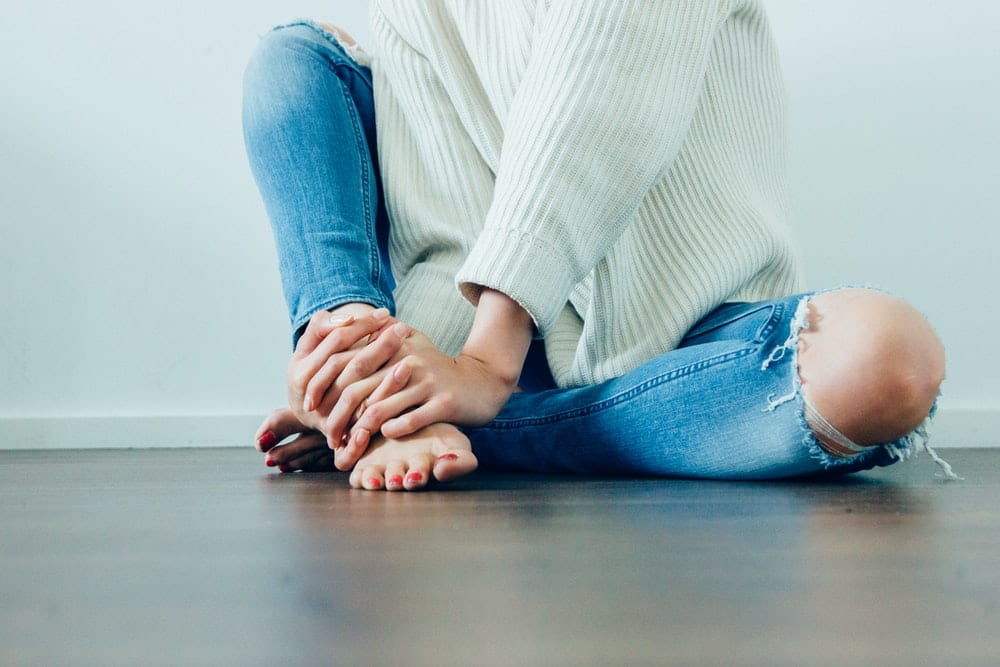More than a painful period – raising awareness for Endometriosis Month
Posted on March 03, 2021
Endometriosis is a common disease in which tissue that is similar to the womb lining grows where it isn’t meant to be – outside the womb and in other parts of the body. Over 11%, or 830,000 Australian women suffer from Endometriosis at some point throughout their lives, with the disease usually starting in teenagers. This means that even if you don’t have endometriosis, you’re likely to know someone who does. To raise awareness during Endometriosis month this March, we’re going to dive into the common myths surrounding Endometriosis, the symptoms, diagnosis and treatment of disease and how it relates to IBS and the low FODMAP diet.
What are the common myths around Endometriosis?
An Endometriosis diagnosis can be surrounded by stigma. Therefore, it is important to address what the disease isn’t to gain a better understanding of what it is. Firstly, teenagers are not too young to have Endometriosis – it is a disorder that can start as early as around the onset of menstruation. It also can’t be prevented by lifestyle factors. It is more than just period pain, and intense period pain is not normal. Subsequently, pain levels are not related to the extent of the disease. Finally, you can’t catch Endometriosis. The lining layer is called the endometrium, and this is the layer of tissue that is removed each month with menstruation or where a pregnancy settles and starts to grow. The main concerns in women who suffer from Endometriosis are the chronic pain that impacts quality of life, and difficulty when trying to conceive.
What are the symptoms of Endometriosis?
Symptoms of Endometriosis include fatigue, pain on or around your period, around ovulation, with bowel movements and during urination. Women who suffer from Endometriosis may also experience pain in the pelvic region, lower back or legs. Around their periods, they may also observe heavy or irregular bleeding.
How do you get diagnosed with Endometriosis?
To be diagnosed with Endometriosis, a laparoscopy and tissue sample must be taken. This is a surgical procedure where a telescope is placed into the umbilicus to allow a Doctor to assess the pelvic organs and abdomen. The tissue that looks like it contains endometriosis is taken out at the time of the procedure and sent to a Pathologist for the diagnosis to be confirmed.

How do you treat Endometriosis?
There is no cure for Endometriosis. However, a multi-disciplinary approach is considered best practice treatment. This typically involves medical, surgical and self-management procedures. Treatment depends on age, severity, whether you plan to conceive and the extent of your Endometriosis. Endometriosis can be well treated and managed but until the cause is determined, no particular treatment will provide a guaranteed cure.
Medical treatments are often used as a first line treatment for symptom control and are often used in conjunction with surgery. There are no known medications that cure endometriosis. However, the contraceptive pill can help balance and regulate periods and often eases distressing symptoms. GnRH analogues and intrauterine devices may also be used for the pain.
How do IBS symptoms interact with Endometriosis?
Women with endometriosis commonly experience bowel related symptoms including diarrhoea with period, bloating, fluctuation between constipation and diarrhoea. Do these symptoms seem familiar to you? That’s because they overlap with common IBS symptoms.
A common symptom of both conditions is visceral sensitivity. Visceral sensitivity refers to sensitive nerve endings, which can lead to a heightened response to pain. Unfortunately, visceral sensitivity can lead to a lower pain tolerance for abdominal or pelvic pain, exacerbating symptoms. Because IBS and Endometriosis share symptoms, it has been suggested that when making a diagnosis of IBS in a woman, endometriosis needs to be excluded first.
How does the low FODMAP diet interact with Endometriosis?
Although diet can’t cure Endometriosis, it can help relieve bowel related symptoms. It’s important to investigate diagnoses of Coeliac or Crohns disease before making drastic dietary changes.
Women with Endometriosis often have a sensitised bowel and FODMAPs may be irritants. It is helpful to know that some foods may be disturbing, disruptive and interfere with quality of life. Hence, it can be very helpful to know which foods make symptoms worse. This is why it can be helpful working with a Dietitian to notice how FODMAPs may impact pain. Other foods that may cause disturbing symptoms such as bloating and diarrhoea include high fat foods, alcohol, coffee, fizzy drinks, highly spiced foods, additives and preservatives. You can learn more about how these foods may impact IBS symptoms in the blog posts linked above.
The overlap between Endometriosis and IBS demonstrate that it is important not to self-diagnose your symptoms. If you suspect you may have IBS, book an appointment with a Doctor and get a proper diagnosis before making dietary adjustments. A low FODMAP diet may control your bowel symptoms, but mask the underlying condition, leading to the wrong diagnosis. For example, a woman who has uncomfortable bowel symptoms may think she has IBS and goes on the low FODMAP diet without medical consultation. In the short term, she may experience relief, but could find out later on that her bowel symptoms were actually due to Endometriosis. Left untreated, Endometriosis can have serious health implications such as subfertility.
In summary
Endometriosis may be a relatively common condition, but it is not normal. Raising awareness and advocating for the women who suffer from this disease is important, as it can greatly impact their quality of life. If you think you may be suffering from the symptoms of Endometriosis, it is important to consult a Doctor and get properly diagnosed in order to work out the best treatment plan. Since the bowel symptoms of Endometriosis overlap with those experienced in IBS, a low FODMAP diet may help relieve digestive discomfort. However, it is important to also work with a gut-health Dietitian to ensure that you are not cutting food groups out necessarily and can manage the digestive consequences of both your diagnoses.
Written by: Charlotte Barber (Student Nutritionist)
Reviewed by: Kiarra Martindale (Accredited Practising Dietitian)











